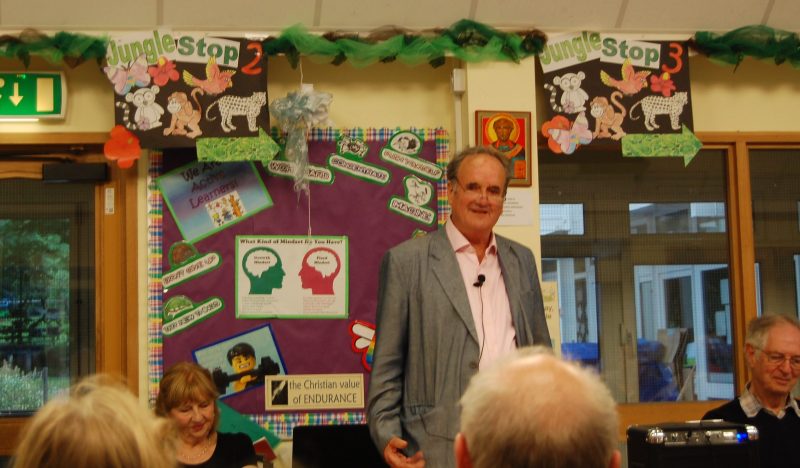Mark Tully, formerly BBC India correspondent and author, gave a talk to the Winchelsea Literary Society on Friday July 15. His theme was “why India matters”. India, with a population of 1.2 billion people is the world’s largest democracy, and as such, it is central to the debate on our planet’s future, he said. How the country deals with its massive problems of social unrest, disease and increasing demand for energy consumption will affect us all, spilling across borders and will even reach Winchelsea!
Countries with emerging economies like India will not accept restrictions on emissions or consumption of the earth’s resources, unless the more developed nations lead the way and adopt life-style changes that are more eco-friendly. Already there is tremendous pressure in in India to emulate the western life-style, but for her whole population to do so would hasten a global crisis and the rape of the natural world.
Tully advocates more dialogue and a better understanding in the West of other religious values. He sees the certainty espoused by both Christianity and by secular scientific thought as dangerously lacking in humility. “Consumerism as the engine of neo-liberalism is fundamentally flawed”, he argued, “we are stuck in the West with wrong values and the problems of inequality and disparity cannot be solved in this way. We need to seek alternative ways of doing economics”.
It boils down to philosophy in his opinion. “We need to embrace the concepts, familiar to Hindus, of the certainty of uncertainty and its corollary, the uncertainty of certainty. Their tradition does not accept that it is possible to accept a fixed and unchanging position, such as a belief in continual economic progress in a finite world.
This perhaps was familiar territory to listeners of BBC Radio 4’s “Something understood” which Tully has presented for the last 21 years. The 60 strong audience wanted to know more about how the caste system is squared with notions of democracy and whether the aspirations of the poor could be managed. We were challenged to find out more and engage with this sub-continent.
Photo: Kenneth Bird



